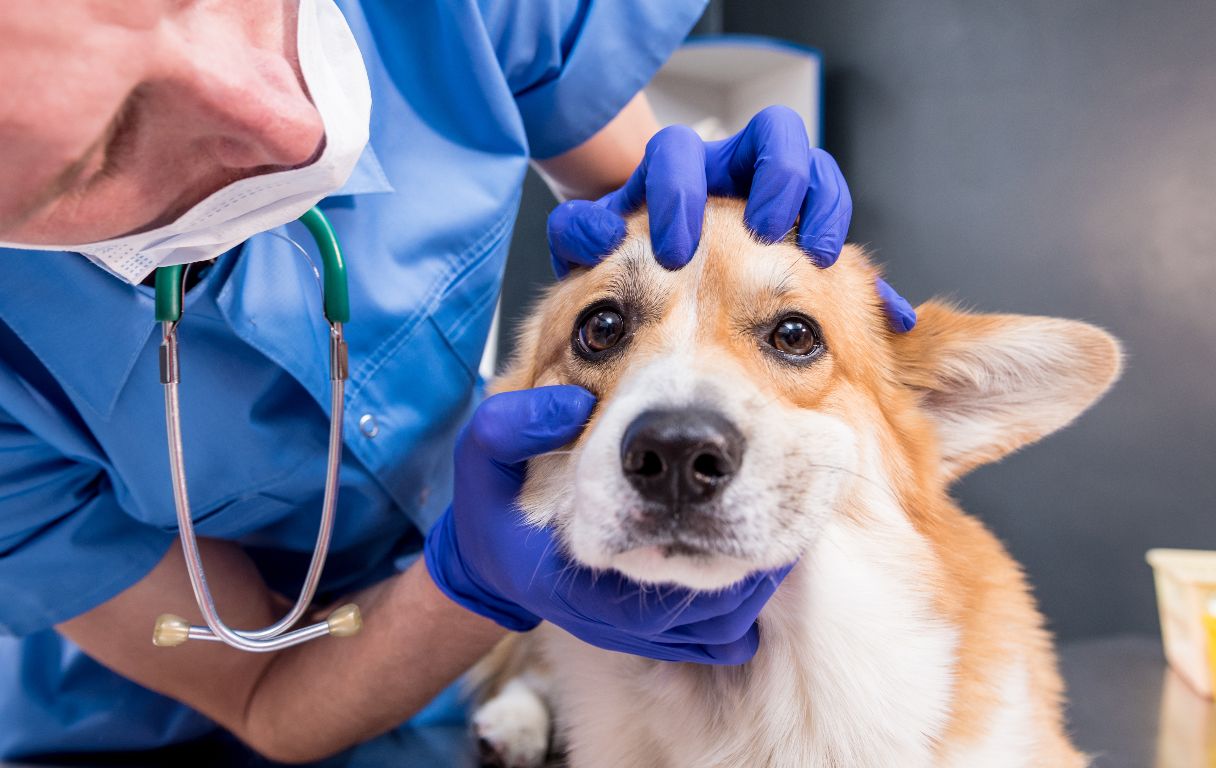While not all conditions or diseases affect humans and dogs alike, seizures do impact both species. Several medical conditions and even poisoning can cause seizures in dogs, and they can be pretty scary to deal with.
What Is a Seizure?
A seizure is a sudden burst of electrical activity in the brain that can cause involuntary changes in body movement or function, sensation, behavior or awareness. A seizure is a single event and can be a symptom of another medical issue or toxicity.1
According to Dr. Jeff Werber, who has been a practicing veterinarian in Los Angeles, California, for more than 35 years, seizures can happen to any dog, regardless of their breed.*
While not all conditions or diseases affect humans and dogs alike, seizures do impact both species. Several medical conditions and even poisoning can cause seizures in dogs, and they can be pretty scary to deal with.
What Is a Seizure?
A seizure is a sudden burst of electrical activity in the brain that can cause involuntary changes in body movement or function, sensation, behavior or awareness. A seizure is a single event and can be a symptom of another medical issue or toxicity.1
According to Dr. Jeff Werber, who has been a practicing veterinarian in Los Angeles, California, for more than 35 years, seizures can happen to any dog, regardless of their breed.*
Canine epilepsy vs. seizures
Epilepsy is a neurological disease that means the person or dog has a higher chance of having seizures.1 Canine epilepsy is an abnormal focus in the brain that fires in response to some stimulus, which can vary from dog to dog, Dr. Werber explains. He adds that usually, dogs who are dealing with epilepsy will exhibit no other symptoms of illness.
What Types of Seizures Do Dogs Have?
There are two types of seizures that dogs can have:2
-
Focal, or partial, seizures. These originate in one part of the brain and typically affect one side or specific parts of the body. Your dog may exhibit some abnormal activity or behaviors (such as facial twitching, chewing movements and/or fear) but they may not check out as they might with generalized seizures.
-
Generalized seizures. Affecting both sides of the brain, these seizures usually result in a loss of awareness. Salivation, urination and/or defecation can occur. If your dog has one of these seizures, they will typically experience involuntary muscle movements or sudden losses or increases in muscle tone.
Generalized seizures include subtle petit mal seizures or very serious grand mal (tonic-clonic) seizures. Petit mal seizures can be so mild that they may not even look like your dog is having a seizure — they look more like your dog is shaking or trembling. Grand mal seizures are the large movements that people typically think of when it comes to seizures, explains Dr. Werber.
What Causes Seizures in Dogs?
While it's known that seizures are caused by a dysfunction in the brain’s electrical activity, the underlying cause often remains unclear apart from specific diagnosable conditions.2
According to Dr. Werber, some known causes of seizures in dogs include:
-
A brain lesion, especially in older dogs
-
A reaction to eating some kind of toxin
-
Epilepsy, especially in middle-aged or older dogs
-
Heatstroke, overheating or dehydration3
-
Severe infections like encephalitis or meningitis
Canine Seizure Symptoms
Some common signs that your dog is having a seizure may include:3
-
Collapse
-
Flailing of the limbs
-
Involuntary motion of the mouth
-
Shivering, shaking or trembling with no apparent cause
Diagnosing Seizures in Dogs
After your dog has a seizure, take them to a veterinarian for an examination and testing to help determine the cause. If no clear cause can be found based on your dog's behavior and lab tests, your veterinarian may hold off on extensive medical testing until after your dog has had a second or third seizure — especially if no other symptoms are present, according to Dr. Werber.
He adds that if your veterinarian has ruled out a cause such as a toxic substance or brain lesion/tumor for your dog's seizures, they may recommend seeing a veterinary neurologist, especially if the seizures are severe. The neurologist might perform an MRI on your dog's brain to aid in diagnosing the condition.
Treatments for Dog Seizures
After determining the cause of your dog's seizure(s), your veterinarian may recommend medication to prevent them, many of which are the same as those used in humans.
These medications and approximate costs include:
-
Anti-seizure medication, such as clonazepam — $8.234
-
Levetiracetam — $33.29 to $37.845
-
Gabapentin — $24.27 to $37.716
-
Phenobarbital — $23.31 to $55.287
-
Potassium bromide — $51.89 to $82.298
When it comes to dosing, your veterinarian will recommend the correct amount and frequency of the medication for your dog, which may affect the cost.
If no cause is found for your dog’s seizures, your veterinarian may not recommend treatment. Similarly, if your dog experiences only one to three seizures per year medication might not be necessary, Dr. Werber explains.
Tips to Prevent Dog Seizures
There is no definitive way to stop your dog from having seizures due to a health condition, but if you notice that a trigger like loud noises sets off your dog's seizures, then do whatever you can to prevent those things. This might include keeping your dog confined in a quiet room during noisy celebrations, thunderstorms or fireworks displays.
You'll also want to keep your dog away from any potential toxins in your home, like medications or cleaners, by locking them away in cabinets or other areas that they can't reach.
While you can control ongoing seizures with medication, there are no medications that you can give your dog to prevent them from occurring in the first place.
Frequently Asked Questions About Dog Seizures
Do you still have questions about seizures in dogs? Here are answers to some frequently asked questions.
CareCredit Credit Card Financing for Dogs
Taking good care of your pet's well-being from nose to tail is essential. Make sure to stay up to date on their regular checkups at the vet to help keep your pet happy and healthy for a lifetime of love. You can use your CareCredit credit card for pet care throughout the year for routine veterinary services as well as emergencies and surgeries.** Use our Acceptance Locator to find a veterinarian near you that accepts CareCredit.
CareCredit is there for you and your pet every step of the way; continue your wellness journey by downloading the CareCredit Mobile App to manage your account, find a provider on the go and easily access the Well U blog for more great articles, podcasts and videos.
In addition to pet care, you can also use your CareCredit credit card for dentistry, cosmetic, vision, hearing, health systems, dermatology, pharmacy purchases, spa treatments and so much more within the CareCredit network. How will you invest in your health and wellness next?
Author Bio
Abbie Mood is a freelance writer with more than 15 years of experience. She has worked with clients of all sizes to create compelling content and she has written for the American Kennel Club, Marriott Bonvoy, Women’s Health Online, Headspace and more.










